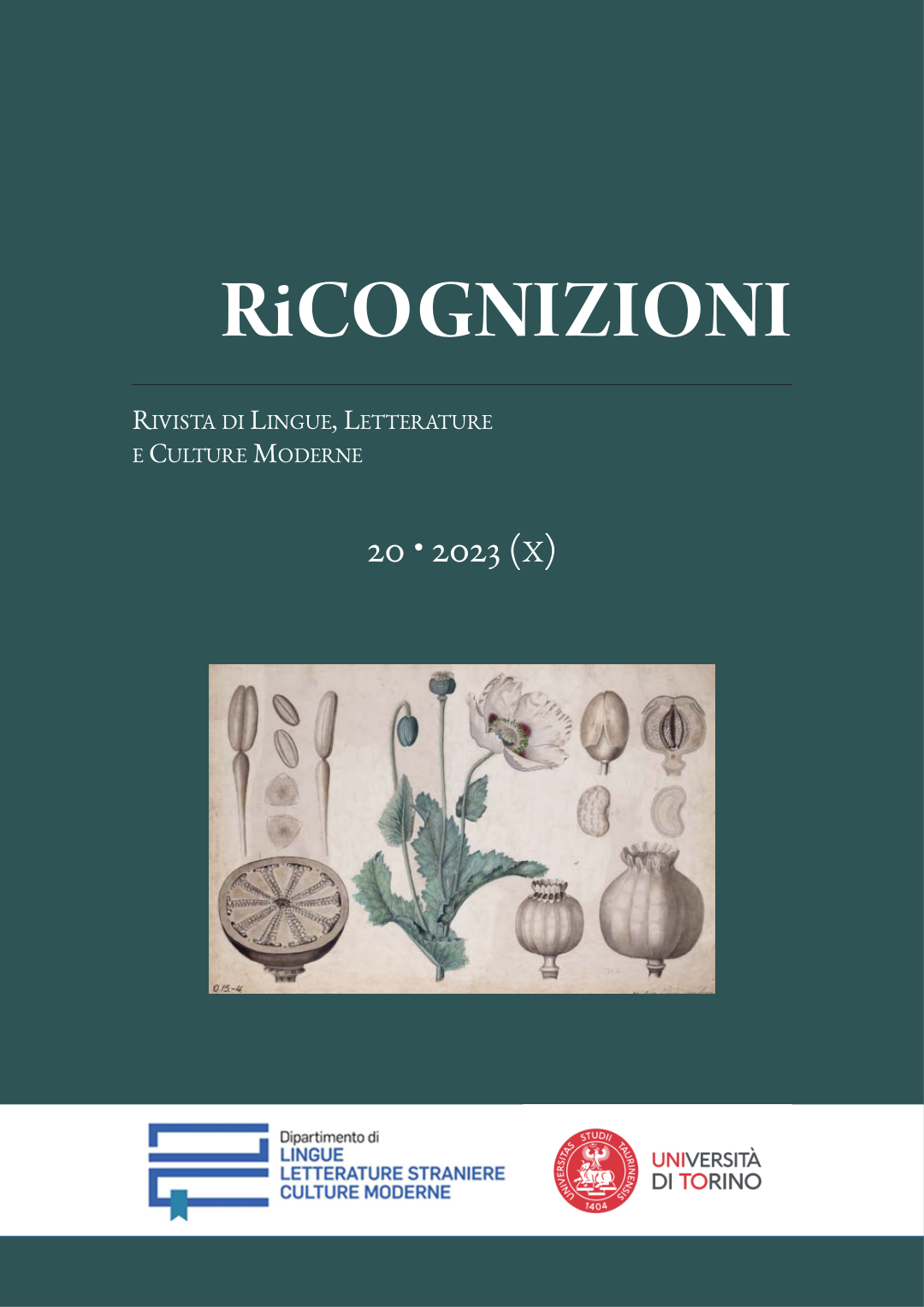Modern Resignation to Postmodern Despair in Don Delillo’s ‘Cosmopolis’ and ‘Falling Man’
Reading DeLillo through Derrida, Baudrillard, and Kierkegaard
DOI:
https://doi.org/10.13135/2384-8987/7448Keywords:
9/11 Fiction, Postmodernism, Modernism, Transcendentality, ArtAbstract
This article investigates how DeLillo depicts the impact of 9/11 in Cosmopolis and Falling Man through the antagonistic (intratextual) and oppositional (intertextual) connections between their characters, and then proves the importance of counter-narrative as a means to survive the encounter with communal and private tragedies. To this end, the articles provides a complementary analysis of DeLillo’s characterizations and stylistic choices in Cosmopolis and Falling Man, reading the novels through the lens of DeLillo’s essay “In the Ruins of the Future” (2001), Jean Baudrillard’s Simulacra and Simulation (1981) and “The Spirit of Terrorism” (2002), Jacques Derrida’s Writing and Difference (1967), Slavoj Žižek’s Welcome to the Desert of the Real (2002), and Søren Kierkegaard’s Either/Or (1843). While the two novels offer a Postmodern sublimation of the defining features and challenges of the post-9/11 lost sense of reality, I argue that Kierkegaard’s Modern philosophy is the key to a comprehensive reading of them, as it offers the theoretical ground for a metaphorical leap of faith that grants access to “a higher realm” of acceptance, overcoming the feeling of bewilderment and alienation in the aftermath of the late modern age.
Downloads
Published
How to Cite
Issue
Section
License
RiCognizioni is published under a Creative Commons Attribution 4.0 International License.
With the licence CC-BY, authors retain the copyright, allowing anyone to download, reuse, re-print, modify, distribute and/or copy their contribution. The work must be properly attributed to its author.
It is not necessary to ask further permissions both to author or journal board.








